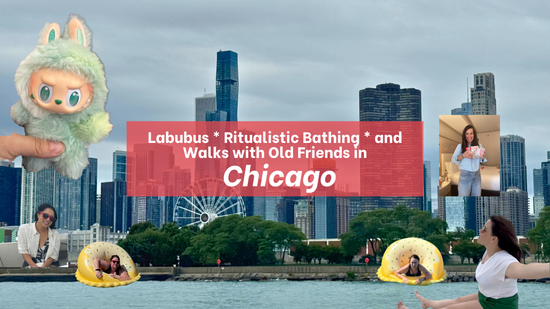Florida Panther Walks in the Fakahatchee
The Florida Panther Walk isn’t an official event, but it’s one I’d sign up for any day, except a summer day, eff that. A couple friends and I recently met up with my dad down in Southwest Florida in mid-January for a few days of hiking and panther watching in the Fakahatchee Strand. I was fresh out of the Key West Literary Seminar and Glamping in Flamingo and ready to decompress on the trails.
Returning Panther Walker, Joella Nicole, was there with keen eyesight and unwavering enthusiasm, and new to the Panther Walk (and Everglades in general) was a buddy from high school, “Your Home Girl” Jenn Harned hailing from downtown Orlando. Jenn is city folk, and she was going out on a limb when she agreed to go looking for panthers with us. I do appreciate a good sport.
We were in the everglades looking for panthers
We’re not biologists or poachers or people looking to get mauled. We’re not trying to trample the marsh or disturb the panthers; we’re just trying to spend some time in wild Florida and catch a glimpse of the big cats— though maybe not Jenn, she’s just has a good sense of humor and likes a good time. But I think I can speak for Joella and me, when I say yes, we have wild imaginations and daily positivity practices, and we’re convinced we’re gonna see a panther one day.


Trail Tales About Panthers
I hear panther tales from locals who have frequented the Fakahatchee for twenty-five years or more and have only seen one cougar. That one story, though, of a panther encounter was described as a “religious experience” and brushes a Salvador Dalí time-melting image across my mind.
My father, on the other hand, has had the good fortune of having four panther sightings over the course of eight visits. He started going down to Fakahatchee and the surrounding area during COVID, in 2020. And to his credit, three of those trips involved Joella and me yipping and yapping and making silly selfie videos while hovering behind him…so…we didn’t enhance his odds.
A couple times my dad spotted the cats through his binoculars while out on some lonesome roads, but by the time he drove within camera range, the cats vanished. Another time, he was on bike and came upon a panther while rounding the first corner of East Tram Trail. And if it needs to be said, he’s a nature photographer in his seventies, so with all respect to my dad and panther defenders…the cat had the upper hand.
The time he got his panther photo, he was again on East Tram Trail, in what he calls “the miracle mile,” that first straightaway after the parking area. And as he tells it, the reason he got the shot was because he looked behind him, and low and behold, there was a panther, crossing the trail.
These stories are what keep the dream alive for me, and I get the impression they work on others too.
What is the appeal of the panther walk?
I really haven’t stopped to ponder this question; I just feel a magnetic attraction to the panther search. And keep in mind, when we’re out walking in the glades we’re not tapped into radio signals from a cougar collar or gps coordinates or digital breadcrumbs. We’re just keeping our eyes open and putting one foot in front of the other. So what is it that compels us? I can’t speak for the others, but I’ll wade into this murky subject.
I suppose it is the hope that the Florida Panther is alive and well, and by seeing it, I can feel less rage about all the development, the new subdivisions going up in panther territory. Or is it the hope that I am worthy of a panther sighting? This question suggests I have a god complex, which has some validity, I mean I am a blogger. Or is the appeal of the panther walk some grotesque postcolonial demand to conquer, to know and see all that is out there, which could somehow make the wild less worrisome. Let’s hope it’s my first supposition.

Managing Expectations on Florida Panther Walks
One thing I didn’t communicate to Jenn in advance, that may behoove you, are the discomforts involved in panther walks in the Fakahatchee. It’s not all silly video-making and smiles out there. You do actually have to walk a lot, unless you plan to just sit (which I’ve heard can lead to a successful panther sighing too).
In case you’re considering stepping foot in the Fakahatchee, here are some things to know before you go.
There are alligators
And by “there are alligators” I mean my dad almost pressed his boot down on a large alligator’s snout, if not for a warning shout from Jenn. After several miles in the heat, the whole scene can blur into a green impressionist painting. A healthy fear of alligators and a stash of protein bars (to keep you alert) goes a long way. We saw so many gators on the sides of trails that we instinctively gathered like cars of a train, to pass the trail gators. I’m not well versed in gator psychology and whether moving in mass would stop a hungry seven or twelve foot gator from advancing, but this method is what we used (for the most part) and here I am, alive to tell the tale. By the way, there are crocodiles too, and from what I’ve read, if given the chance they’ll eat you dead.

Swamp Angels
Sure, anytime there’s water and temperatures above seventy degrees, there are swarms of mosquitoes in Florida. What we experienced in the Everglades on this trip is beyond that norm. The mosquitoes down there are historically called “swamp angels,” and they’ve kept progress and development away for hundreds of years—well, the mosquitoes and other factors—and thank God. So, all I’m saying is, if you have thoughts such as, I’ll just wear long sleeves, or I’ll bring my herbal bug repellent, think again. DEET may eat through plastic in laboratory tests, which, yes, should give us pause before lathering it on our skin organ, but I watched mosquitoes draw blood through my dad's khaki Columbia expedition shirt and Jenn’s Lululemon tights, so pick your poison and come prepared.
Marsh climate
Joella and I had the good fortune of first experiencing the Fakahatchee with Bill during a cold spell in 2021. I think it was thirty degrees fahrenheit one of those mornings in nearby (and ever-encroaching) Naples, Florida. I say this to establish the fact that we had a tropical wonderland free of mosquitoes and nary a gator to be seen upon our first encounter of the Everglades. The trip we took in January of ‘24 was a different climate altogether, with a muggy, buggy snaggletooth. Expect to sweat through your clothing and then for your clothing to remain damp for the rest of the day. Also, you will sweat off your DEET bug repellent every fifteen minutes on the dot, so hike with your bug spray in tow.

Lethal snakes
Let’s be clear, there are lethal snakes on the loose in the Everglades. If we just focus on the native varieties for a moment, there are moccasins, rattlers, coral snakes and probably more. Any of those get a fang in you and it’s lights out. You won’t have cell reception to call for help until you get your snake-bit ass off the trails, into your car, and a half-hour down rutted out roads toward civilization. So, my plan is always don’t get bit. Wear boots, wear waders, and say a few prayers.
Unexplained noises
I hesitate mentioning the unexplained sounds of the everglades because from the comfort of my home in Oregon, where I am finishing up this article, it seems trivial. But when you're standing on a sparsely traveled trail two miles from the car, scanning pop ash trees, knobby cypress knees, and tannin waters for crouching cougars, you can start to get a little jumpy. At least I did. And it's so quiet out there, that you are keenly aware of the sounds you encounter. We charted red shouldered hawks, red-bellied woodpeckers, yellow-throated vieros, and blue-grey gnat catchers using a Merlin app.
But there was one sound on this trip that I can't explain. We were walking next to thick, tall grasses that were splayed out in different directions and suddenly there was a loud thumping or pounding sound beside us, and I thought we were about to be stampeded by unseen cattle. Fortunately, our instincts kicked in and Jenn, Joella, and me formed what can only be described as a defensive group hug, and then we spun around and screeched. Whatever it was that made the sound didn't show itself and it didn't bother us again.
No panther guarantees
I've now gone trekking on three multi-day hikes in the Fakahatchee and haven't seen a panther, but I have seen plenty of panther tracks and scat. I still hold hope that conservation activities will take root and an expanded wildlife corridor will increase the odds of survival for the Florida Panther—and the odds of catching a glimpse of one in the Fakahatchee and beyond.



